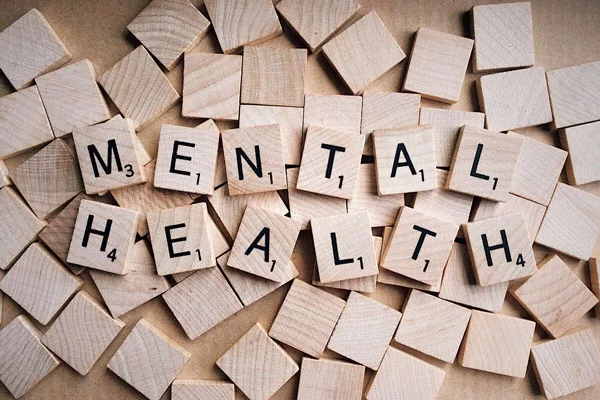Embracing Emotional Well-being in Retirement: A Guide to Staying Happy and Healthy
Table of Contents
Introduction
Retirement: a time when you finally get to kick back, relax, and then realize you have no idea what to do with all this free time. It’s like opening the fridge and forgetting what you came for.
But fear not, because emotional well-being is your secret ingredient to a fulfilling retirement, and we’re here to spill the beans (or should we say, emotions?).
Real-Life Stories: Emotional Well-being Examples
Let’s start with a story. Meet Jim, a retired bank manager, who discovered his passion for gardening and now talks to his plants more than to people.
Or Susan, who started a book club that ended up being more about sharing life stories than discussing the latest novels. These are prime examples of finding joy and emotional satisfaction in the simple things.
Emotional well-being isn’t about constant euphoria; it’s about finding contentment and joy in everyday life – yes, even when your favorite TV show gets canceled.
Keys to Happiness: How to Improve Emotional Well-being
Improving emotional well-being is like trying to solve a Rubik’s Cube – it can be puzzling but oh-so satisfying once you get the hang of it. Here are some tips:
- Stay Connected: Social interactions aren’t just for those hip young folks. Call a friend, join a club, or maybe finally figure out how to use Skype.
- Keep Moving: Whether it’s a stroll in the park or chasing your grandkids around (bonus points if you tire them out before their parents come to pick them up), staying active is key.
- Find a Hobby: Ever wanted to paint, learn an instrument, or knit a sweater? Now’s your chance! If it turns out terrible, you’ve got a great story to tell.
- Mindfulness and Relaxation: Meditation isn’t just for monks. Even just a few minutes a day can do wonders for your mood. And yes, naps count.
Understanding the Elderly Mind: Emotional Well-being in the Elderly
Emotional well-being in the elderly is like a fine wine; it can get better with age, but you’ve got to store it right.
Aging can bring challenges like health issues or feeling like you’re not contributing to society. But it also brings wisdom, experience, and often a clearer understanding of what makes you happy.
Remember, it’s not about being perpetually cheerful; it’s about feeling fulfilled and at peace.
The Science of Feelings: Emotional Well-being Psychology
From a psychological standpoint, emotional well-being involves managing feelings, recognizing stressors, and maintaining a positive outlook. It’s about balancing the emotional checkbook.
You might not always have a surplus of happiness, but avoiding an emotional overdraft is key. It’s like being your own emotional accountant.
Why It Matters: Importance of Emotional Well-being
Why focus on emotional well-being? Because it’s the spice of life in your golden years! It affects everything from your physical health to your relationships with family and friends.
Think of it as the oil that keeps your life engine running smoothly. Neglect it, and you might just find yourself stranded on the side of the retirement road.
Mind and Mood: Emotional Well-being and Mental Health
Emotional well-being and mental health are two peas in a pod. They go hand-in-hand like peanut butter and jelly.
Good emotional health can buffer against mental health issues, and actively taking care of your mental health can boost your emotional well-being. It’s a win-win situation.
Conclusion
In conclusion, emotional well-being in retirement isn’t about filling every moment with excitement (although, if that’s your thing, more power to you!). It’s about finding balance, joy, and contentment in your daily life.
So, go ahead, talk to your plants, join that quirky hobby group, or start your own book club.
The key is to keep laughing, keep loving, and maybe, just maybe, figure out what you came to the fridge for in the first place.
Frequently Asked Questions
How Can I Stay Emotionally Connected with My Family and Friends in Retirement?
Staying emotionally connected is all about making an effort. Regular phone calls, video chats, and, if possible, frequent visits can help. Don’t shy away from embracing technology – it’s a great tool for keeping in touch with loved ones, no matter the distance.
What Are Some Effective Ways to Deal with Loneliness in Retirement?
Combating loneliness starts with reaching out. Join community groups, take up new hobbies that involve group settings, or volunteer. These activities not only fill your time but also provide valuable social interactions.
Is It Normal to Feel a Loss of Purpose Post-Retirement?
Absolutely, it’s quite common. A big part of emotional well-being is finding new purposes. This could be anything from hobbies and travel to mentoring or volunteering. Remember, your value doesn’t diminish because you’ve stopped working.
How Important Is Physical Activity for Emotional Well-being in Retirement?
Very important! Physical activity boosts endorphins, which can improve mood and reduce feelings of depression. Activities like walking, yoga, or even gardening can be both physically and emotionally beneficial.
Can Starting New Hobbies Impact My Emotional Well-being?
Yes, starting new hobbies can be very impactful. They not only provide a sense of achievement and purpose but also offer opportunities to meet new people with similar interests, keeping your mind active and engaged.
How Can I Manage Stress and Anxiety in Retirement?
Managing stress and anxiety can involve several strategies, such as practicing mindfulness or meditation, maintaining a regular routine, staying physically active, and seeking social support. Don’t hesitate to seek professional help if feelings of stress and anxiety become overwhelming.
What Role Does Diet Play in Emotional Well-being?
A balanced diet plays a significant role. Foods rich in omega-3 fatty acids, fruits, vegetables, and whole grains can have a positive effect on mood. A good diet supports overall health, which in turn can improve your emotional state.
How Can I Improve My Sleep for Better Emotional Health?
Good sleep is crucial for emotional well-being. Establish a regular sleep routine, create a comfortable sleep environment, and avoid stimulants like caffeine before bed. If sleep issues persist, consult a healthcare provider.
Should I Consider Professional Help for Emotional Well-being?
If you’re struggling, professional help can be very beneficial. Therapists or counselors specialized in working with retirees can offer targeted strategies and support to improve your emotional well-being.
How Do I Balance Independence with Accepting Help in Retirement?
Balancing independence with accepting help involves recognizing when you need assistance and being open to accepting it. It’s about understanding that seeking help when needed is a strength, not a weakness.
Can Volunteering Enhance My Emotional Well-being?
Absolutely! Volunteering can provide a sense of purpose, help you meet new people, and contribute to a greater good, all of which are fantastic for your emotional well-being.
What Are Some Ways to Stay Mentally Active in Retirement?
Staying mentally active can involve puzzles, reading, writing, learning new skills or languages, or even teaching. Keeping your brain engaged is key to maintaining emotional health.
How Can I Handle the Emotional Impact of Physical Health Issues?
Dealing with physical health issues can be challenging. It’s important to seek support from healthcare providers, talk to family and friends, and engage in activities that are fulfilling and possible within your physical limits.
Is It Common to Feel Guilty About Enjoying Retirement?
Sometimes, retirees feel guilty, especially if peers are still working or facing difficulties. It’s important to acknowledge these feelings but also to recognize that you’ve earned this time for yourself.
How Can I Make My Retirement Years the Best of My Life?
To make retirement the best years of your life, focus on doing things that bring you joy, stay connected with others, keep learning and trying new things, and take care of your physical and emotional health.




